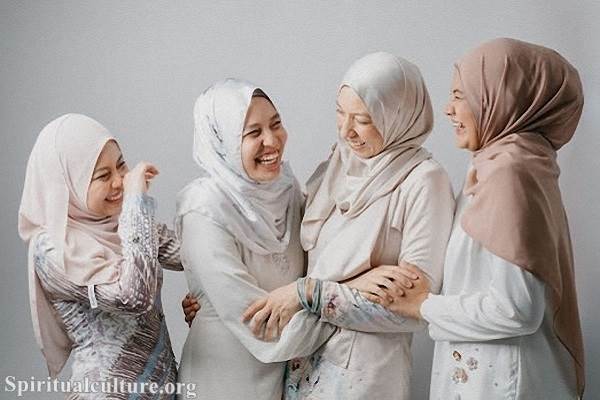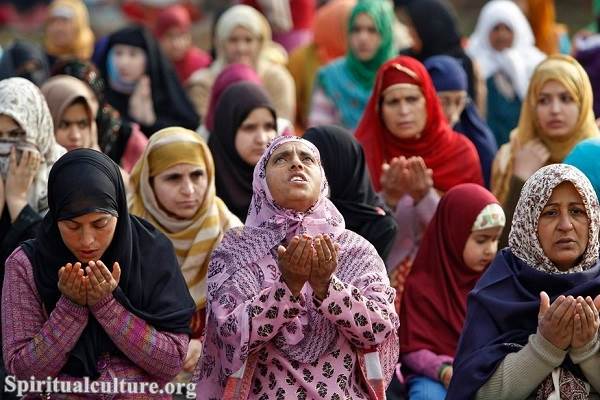In every society, questions of leadership and decision-making inevitably arise. Who should lead? How should decisions be made? And what ensures that the voices of the people are heard and honored?
In Islamic thought, one of the most profound answers to these questions is found in the concept of Shura — a divine principle of consultation. It is not merely a mechanism for discussion, but a deeply spiritual practice rooted in humility, justice, and communal accountability. Shura is both a reflection of the Prophet Muhammad’s (peace be upon him) leadership and a model for Islamic governance throughout history.
In this article, Spiritual Culture explores what Shura truly means — its origin in the Qur’an, its expression in the Prophet’s life, and its powerful implications for leadership, justice, and society in both past and present Muslim communities.
What Does Shura Mean?
A Linguistic and Spiritual Definition
The Arabic word Shura (الشورى) means “consultation” or “mutual advice.” At its heart, Shura implies shared counsel and participatory decision-making. But in Islam, it is far more than a political tool — it is a spiritual discipline that reflects mutual trust, humility before God, and collective responsibility.
A Qur’anic Mandate, Not Just a Preference
The Qur’an elevates Shura to the status of divine guidance:
“…and consult them in affairs. Then when you have decided, put your trust in Allah. Indeed, Allah loves those who rely upon Him.”
(Qur’an 3:159)
And again, in describing the qualities of a righteous community:
“…those who respond to their Lord, establish prayer, conduct their affairs by mutual consultation, and spend from what We have provided them.”
(Qur’an 42:38)
These verses show that Shura is not optional — it is integral to Islamic governance and communal life. It is a value embedded within the moral fabric of the Ummah (community).
Shura in the Life of the Prophet Muhammad ﷺ
Consultation as Leadership in Action
The Prophet Muhammad ﷺ is the supreme example of Shura. Though divinely guided, he consistently consulted his companions on important matters — from diplomacy and military strategy to internal disputes and societal issues. His leadership was not authoritarian, but deeply participatory.
The Battle of Uhud: Listening to the Youth
Before the Battle of Uhud, the Prophet ﷺ preferred to defend Medina from within the city. However, the majority of younger companions favored going out to meet the enemy. Despite his personal view, the Prophet honored the Shura process and accepted the majority opinion. This act was not about military strategy alone — it was a profound lesson in leadership and humility.
Treaty of Hudaybiyyah: Patience Through Dialogue
The Treaty of Hudaybiyyah appeared unfavorable to many Muslims, but the Prophet consulted his companions and upheld the agreement — knowing its long-term benefit. Shura, here, became a tool of divine patience and far-sighted wisdom.
Shura in Early Islamic History
The Rightly Guided Caliphs and the Legacy of Consultation
After the Prophet’s death, the first four Caliphs (al-Khulafā’ al-Rāshidūn) upheld Shura as a foundational practice.
- Abu Bakr al-Siddiq was selected through communal consensus after extensive consultation among the companions.
- Umar ibn al-Khattab established a Shura Council that advised him and played a crucial role in nominating his successor.
- Uthman ibn Affan and Ali ibn Abi Talib also governed with consultative assemblies, seeking counsel even in times of deep political tension.
The Shura Council: An Early Form of Participatory Governance
While not a modern democracy, the early Islamic system embodied the spirit of inclusive deliberation. The Caliphs were accountable to the people and expected to seek advice regularly, recognizing the Ummah as a source of collective wisdom.
Shura vs. Modern Democracy: What’s the Difference?
Shared Goals, Different Roots
At a glance, Shura and democracy both promote collective decision-making, accountability, and the inclusion of different perspectives. But their foundational principles differ:
- Democracy is typically grounded in secular, human-centered frameworks.
- Shura is rooted in divine guidance, with the Qur’an and Sunnah as its moral compass.
Key Distinctions:
| Shura | Democracy |
|---|---|
| Based on divine revelation (Qur’an & Sunnah) | Based on secular constitutional law |
| Moral responsibility to God | Civic responsibility to state or electorate |
| Emphasizes communal consensus under divine principles | Emphasizes majority rule |
| Guided by ethics, not just legality | Can be shaped by political interests |
While some Muslim-majority countries have sought to harmonize the two — incorporating consultative councils and electoral mechanisms — traditional Shura emphasizes moral accountability to Allah above all.
The Spirit of Shura: More Than Just Politics
Consultation in Daily Life and Community
Shura isn’t just for rulers and leaders. It is a principle for families, businesses, mosques, and grassroots communities. Whether deciding on a family matter or managing a community project, Islam encourages mutual consultation:
“And those who conduct their affairs by mutual consultation…”
(Qur’an 42:38)
This verse speaks to the culture of listening, respecting diverse views, and reaching decisions with care and sincerity.
In Marriage and Parenting
The Prophet ﷺ modeled Shura in his home life. He consulted his wives, listened attentively, and valued their input — most famously seen during the Treaty of Hudaybiyyah when Umm Salama’s advice helped calm a crisis.
Shura in parenting teaches children the value of dialogue and respect — fostering maturity and trust within the family unit.
Challenges to Shura in the Modern World
Political Realities and Lost Traditions
Despite its foundational place in Islamic governance, Shura has often been neglected or misunderstood in many modern Muslim societies. Authoritarianism, colonial legacies, and internal divisions have sometimes overshadowed this principle.
Rediscovering the Ethic of Listening
To revive Shura is to revive a culture of sama’a — deep listening, humility, and spiritual responsibility. It’s not about Westernizing governance but reclaiming an Islamic ethic of accountability, justice, and participation.
Shura in Contemporary Muslim Thought
Reinterpreting for Today’s Needs
Modern Muslim thinkers like Rashid al-Ghannushi, Taha Jabir al-Alwani, and Muhammad Asad have emphasized the compatibility of Shura with constitutional government, provided it retains its spiritual roots.
They argue that Shura, when divorced from authoritarianism and re-anchored in Qur’anic values, offers a model of governance that is:
- Ethically principled
- Spiritually grounded
- Socially responsive
Reflect and Reimagine
Shura is more than a governance model. It is a vision of human dignity — where every voice matters and where decisions are made not out of ego or expedience, but out of faith and collective trust.
In a world overwhelmed by polarization and power struggles, the Islamic principle of consultation invites us back to the sacred act of listening — to one another, and to the guidance of the Divine.
Spiritual Culture invites you to rediscover Shura as not only a historical practice, but a living, breathing ethic of unity, respect, and shared wisdom. Whether in your home, your community, or your nation — may consultation be not just a process, but a prayer.



